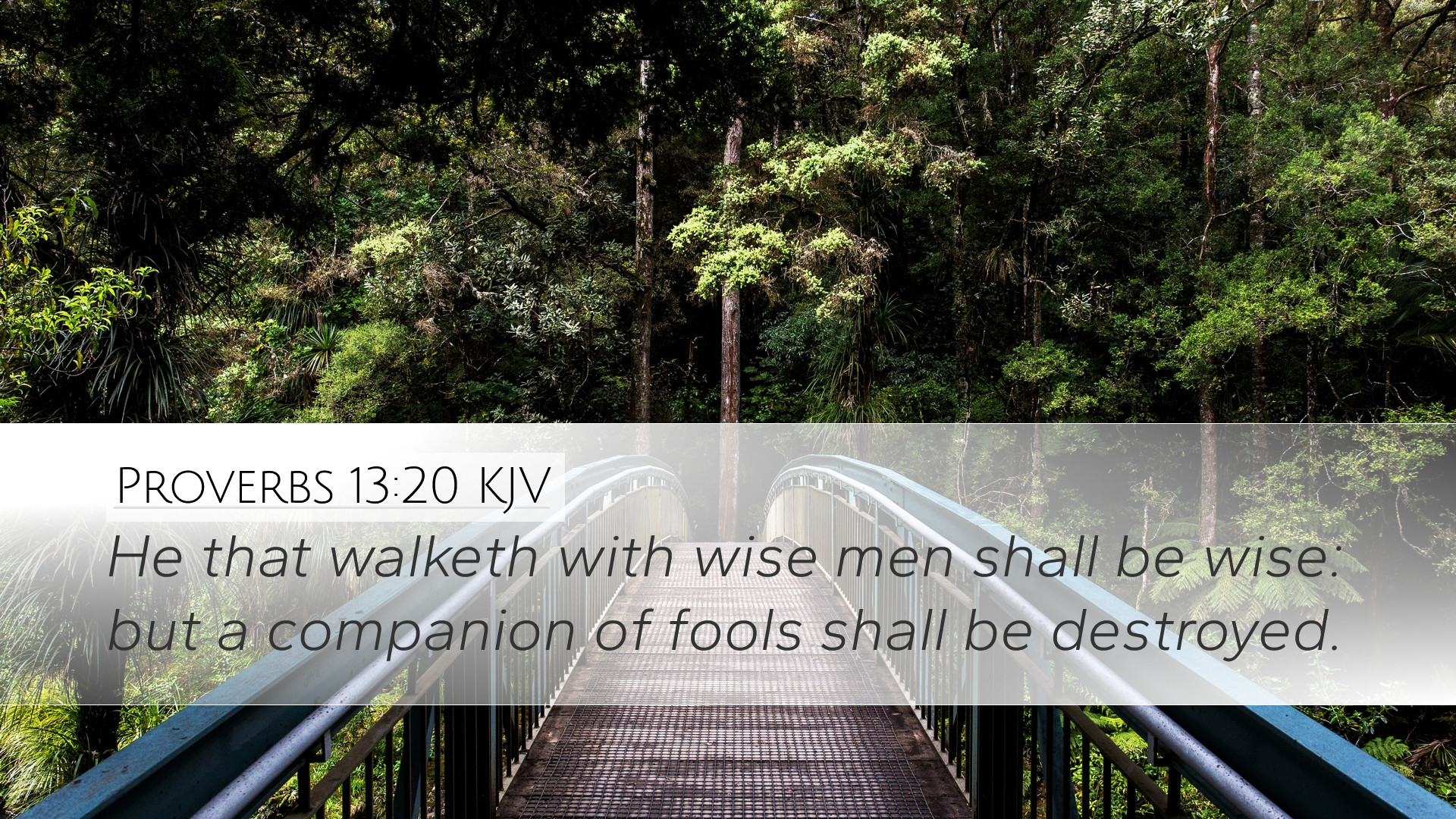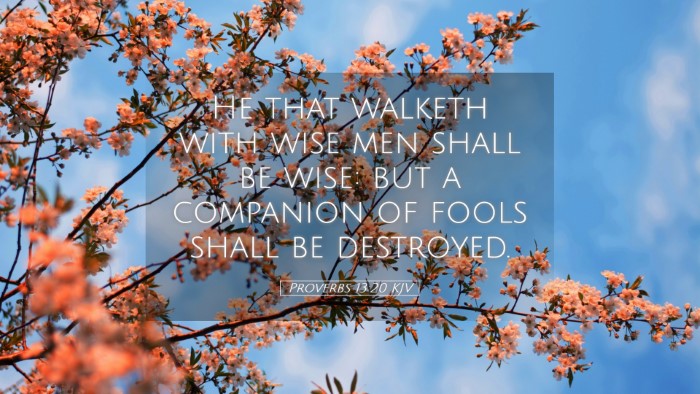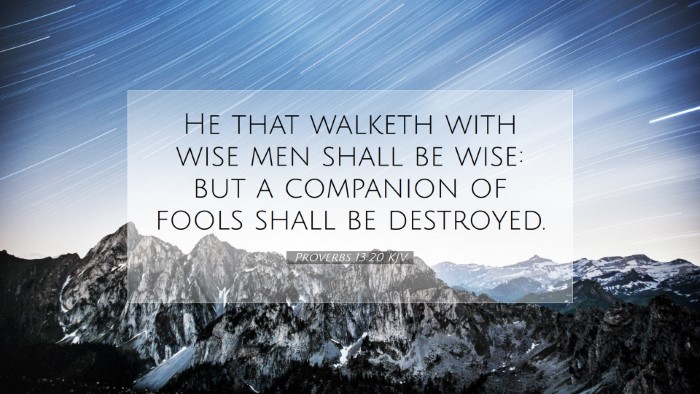Commentary on Proverbs 13:20
Bible Verse: "He who walks with wise men will be wise, but the companion of fools will be destroyed." (Proverbs 13:20)
Introduction
The Book of Proverbs is a treasury of divine wisdom that provides practical guidance for daily living. Proverbs 13:20 offers critical insights regarding companionship and its impact on one's character and fate.
Understanding the Verse
This verse contrasts the results of walking with the wise compared to associating with foolish individuals. The wisdom here is not just intellectual but reflects choices that lead to a fruitful and meaningful life.
Commentary Insights
-
Matthew Henry’s Commentary
Matthew Henry emphasizes the importance of choosing friends wisely, stating that to "walk with the wise" entails frequent interactions and a mutual influence among individuals. He argues that wisdom enriches one's life and choices, while foolish companionship leads to moral decay. Henry observes that the "companion of fools" endangers one's well-being and often leads to destruction, showcasing the profound impact of our social circles.
-
Albert Barnes’ Notes
Albert Barnes reiterates the theme of influence in this proverb, highlighting that associations can significantly alter one's character. He points out that the term “wise” denotes not merely scholarly wisdom but also moral understanding and practical application. Barnes warns that associating with fools might not produce immediate consequences but often leads to ruin over time, suggesting that individuals should evaluate their friendships with discernment and care.
-
Adam Clarke’s Commentary
Adam Clarke reflects on the implications of this verse in both social and spiritual contexts. Clarke posits that walking with wise men encourages spiritual growth and moral integrity, offering protection and encouragement. Conversely, he observes that the foolish are characterized by folly and a lack of understanding, leading to a path of destruction, which he notes is not just physical ruin but can lead to spiritual death. Clarke admonishes readers to seek wisdom and understand the grave consequences of poor companionship.
Theological Implications
The implications of Proverbs 13:20 extend beyond mere social interactions. Theologically, it sheds light on the nature of wisdom as a gift from God and underlines the necessity of divine guidance in choosing companions. The passage challenges believers to foster relationships that reinforce their faith and bolster their spiritual journey.
Application and Reflection
"He who walks with wise men will be wise" not only guides individuals in making choices about friends but also encourages self-reflection on the qualities one embodies. Here are practical applications:
- Evaluate Relationships: Assess current friendships and their influence on one's life choices.
- Pursue Wisdom: Actively seek relationships with individuals who exemplify Godly wisdom and integrity.
- Be a Source of Wisdom: Strive to be a wise companion to others, influencing them positively.
- Understand Consequences: Recognize the potential long-term ramifications of foolish associations on one's spiritual and moral well-being.
Conclusion
Proverbs 13:20 serves as a profound reminder of the importance of companionship in the journey of life. Walking alongside wise individuals fosters growth and wisdom, while the companionship of fools leads to destruction. This wisdom from Proverbs encourages pastors, students, theologians, and all believers to carefully curate their social influences, striving for relationships that will amplify their faith and lead to a life of purpose and fulfillment.


